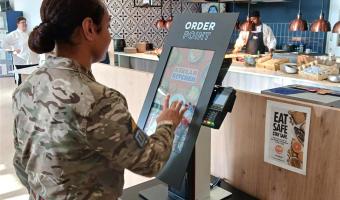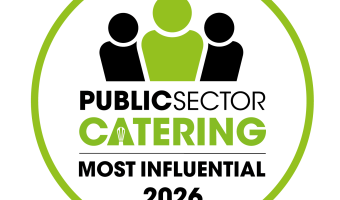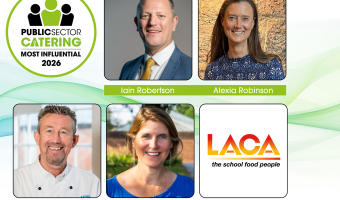
This has given me the time to really mull over something I've been thinking about since I took on the role of chair of the Public Sector Catering Alliance: how there are so many shared challenges, yet at the same time, each individual sector is dealing with specific challenges unique to their settings, that some of us aren't fully able to understand.
It has reminded me why we need to spend time listening to each other, to front-line caterers, and to our customers – something that I know I can be guilty of overlooking at times.
Some of the challenges I've been trying to articulate are:
- The benefits, as well as the drawbacks, of requiring formal training and professional standards for our teams. These are absolutely appropriate in some areas of work, but could be an overwhelming barrier to others in our workforce.
- How public sector caterers are often first responders in times of crisis or emergency. I was recently reminded quite clearly of how my own teams have stepped up in the past to support communities when they have been affected by weather events and when our communities were so adversely affected during the pandemic.
- The impact of political decision-making on resource allocation, and of net migration requirements on public sector catering recruitment. There is also the unseen impact on the wider food industry that affects us all, be that through product alignment, price increases, or suppliers facing the choice to close or diversify.
- How increasing demands for a wide range of special diets impacts our front line and our management teams. This manifests itself in managing the many food allergens, an increase in meals that meet the various IDDSI standards for our aging population, as well as the requirement to meet religious, cultural, and lifestyle choices that mean the traditional two-choice meal option is long a feature of the past.
- How our services have embraced technology, and how caterers have kept pace with market demands for better food safety, for more choice on menus, for more efficient waste management, and improved data analysis.
- The way our caterers and management teams keep menus fresh, modern, seasonal, and in keeping with market trends to support customer choice and maximise uptake of meals. And how that means different things in a university or school compared to a hospital or care home.
I haven't even touched on changing market conditions, frustrations over costs, or the daily challenge of meeting evolving sustainability goals. All of these issues aren't only challenges, though.
Many caterers continue to embrace them as opportunities to improve how services are delivered, to be more agile in responding to customer demands, and I see many people leveraging partnership working and collaboration to refresh and at times simplify our core business.
If you have a story to tell about how you and your organisation is overcoming any of these issues, please do get in touch: we'd love to hear from you, and to share your learnings more widely. I firmly believe that it's only by sharing that knowledge and experience that we'll continue to grow and evolve as a critical industry, one that continues to put people and customers at its core.








